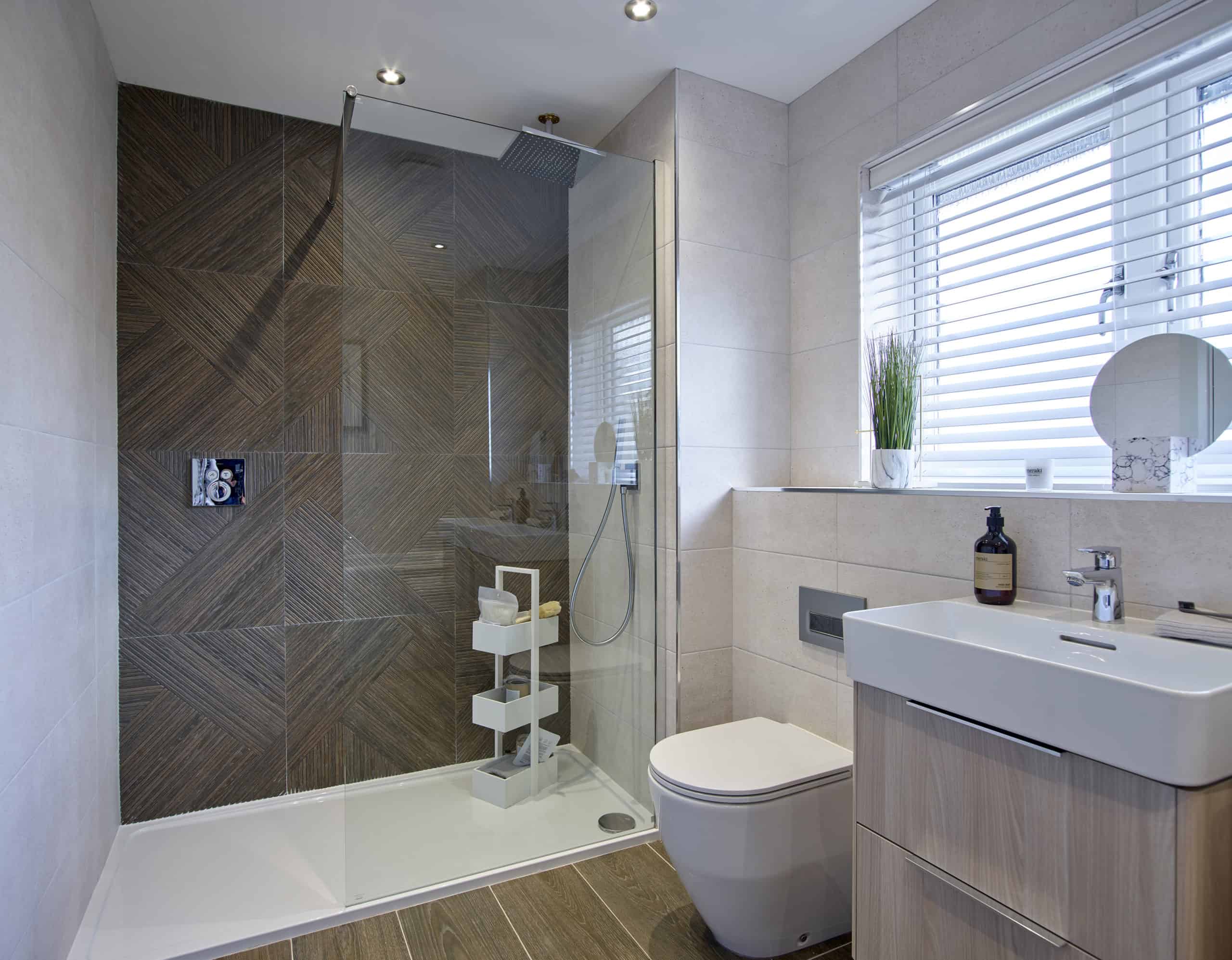
Quick Guide to finding & appplying for a mortgage
So you've found your dream new home and want to get the ball rolling. For most people the next step is arranging a mortgage. We understand it can seem daunting, but we know it doesn't have to be - so here is our Quick Guide to Finding & Applying for a Mortgage for your new home.
What is a mortgage?
Types of mortgage & interest rates
Independent Financial Advisors
How to improve your credit rating
Applying for a mortgage in principle
Making a full mortgage application
Building & Contents Insurance for your new home
Most new home buyers will require a mortgage in order to complete their purchase. A mortgage is simply a loan, usually from a Bank or Building Society, given towards the purchase of a property.
Lenders will require that you put down a deposit in the region of 5%-40% of the value of the property, in order for them to agree to lend you the remainder of the purchase price.
The payments you make depend on several things:
- The value of the mortgage
- The length of mortgage term (in years)
- The interest rate agreed
- The type of mortgage
See our handy morgtgage calculator below for a basic idea of how much your payments might be.
The great news is that there is a vast array of mortgage products available.
An Independent Financial Adviser will be able to explain all your options and find the best deal for you. Ask the Sales Executive at your chosen development for more details about our panel of trusted IFAs.
There are two main kinds of mortgage – Repayment Mortgage and Interest Only Mortgage.
Once you understand the difference between the two, you’ll need to know about Interest Rates.
Repayment mortgage
Repayment mortgages are the most common type of mortgage for buying a new home.
At the end of the loan term, a repayment mortgage assures you will have paid off the entire loan and will own the property outright.
With a repayment mortgage you pay some of the loan and some of the interest on the loan every month.
- Capital repayments are payments on the amount borrowed
- Interest repayments pay off the interest on the loan.
Interest only mortgage
With an interest only mortgage, the borrower pays only the interest on the money lent. This significantly reduces the size of monthly mortgage payments.
If they continue to pay only the interest for the entire length of the mortgage term, they will owe the entire value of the loan at the end of the mortgage term.
Interest only mortgages are not generally available for new home purchases unless its buy-to-let.
Interest Rates
You pay interest on top of any loan you take out. So you’ll be paying back both the loan itself and the interest on the loan.
How much interest you pay depends on the interest rate of your mortgage. If you have a small deposit you may end up paying a higher interest rate. Find out about our Deposit Match scheme which can help increase your deposit and so reduce your mortgage.
Here are the main types of Mortgage Rate:
Fixed Rate Mortgages
- Your monthly repayment amount will be fixed for an agreed period - usually 1, 2 or 5 years
- The rate will not change, regardless of any changes to the lenders standard variable rate or the Bank of England's base rate.
- Once the fixed rate period is over, the interest rate will revert to the lenders standard variable rate.
- If you decide to cancel your mortgage within than time, you may have to pay an early redemption penalty.
- Some lenders offer fixed rates with the flexibility to make unlimited overpayments without being charged an early repayment fee.
Variable Rate Mortgage
- A variable rate mortgage is based on the lenders standard variable rate.
- Lenders standard variable rate is affected by the movement of the Bank of England's base rate. Usually variable rates stand at around 1.5%-3.5% above the Bank of England base rate, but they do vary from lender to lender.
- The lender is under no obligation to change the standard variable rate in accordance with the movements of the Bank of England base rate. A tracker rate mortgage will offer this option.
Tracker Mortgage
- A tracker mortgage is set a certain amount above the Bank of England’s base rate, so any changes to the base rate will affect a tracker rate mortgage.
- So for example, if the Bank of England base rate stands at 1%, and the mortgage offered by the lender is 1% above base rate, the tracker mortgage rate would stand at 2%, until the Bank of England base rate changes.
- The benefit to the borrower is that all falls in Bank of England interest rates are passed on to them; but on the flip side, all increases are also passed on.
- Tracker rates are particularly attractive if interest rates look set to remain broadly stable or fall during the deal period.
- If you have the flexibility within your personal finances to adapt your payments in reaction to interest payments, you may also feel that a tracker rate mortgage is right for you.
- Tracker rate mortgage periods can vary between 2, 3, 5 or 10 year mortgages, and once the term is up the mortgage will revert to the lenders standard variable rate.
For information on all the options above, we would recommend you speak to an Independent Financial Advisor (IFA) who will be able to offer tailor made advice for your personal situation.
A good IFA, mortgage broker or mortgage advisor will be able to give you advice and guidance on the process of applying for a mortgage.
This will be especially useful if you are a first time buyer looking for a mortgage.
IFAs have access to a whole raft of different mortgages and will be able to help you make informed choices between fixed rate and tracker, repayment and interest only mortgages. They can also help you with your mortgage application.
Choosing an IFA
It’s always a good idea to choose mortgage brokers based on recommendation to help ensure you find the best people for the job.
If you buy a home from us, we work with a panel of trusted IFAs. Because we work together all the time, we suggest you use them for the smoothest mortgage application possible.
How your IFA can help
Initially, your IFA will make an informal review of your financial situation to check if you are likely to be able to get a mortgage. Once they have assessed your eligibility, they will be able to tell you:
- What mortgages are available to you
- How much you will pay on a monthly basis at the current interest rate – this may change if rates are altered
- How much you will pay overall at the current interest rate
- How much you will be charged for a valuation on the property
- How much you pay when initial agreed term is finished
- Whether there is any early repayment fees and if the mortgage is transferable to another property
- What insurance options are available to you
- Whether you need to look at improving your credit rating before making a formal application
When applying for a mortgage, the lender will assess your credit rating to get an idea of your financial behaviour. Credit scoring will dictate which mortgage products you can receive from lenders - the better your score, the better the options open to you.
There are some simple things that you can do to help improve your credit rating...
- Take out a credit card or a mobile phone contract and prove that you are a responsible consumer by paying off the balance every month.
- Your total amount of debt is a key factor in getting a mortgage, so avoid taking out additional debt or making large credit purchases until after you have purchased your new home.
- Cancel unused credit cards and accounts.
- Make sure that you are on the electoral roll.
- Pay off loans and credit agreements ahead of schedule.
- Make sure that your credit files are correct. You can check your credit reference file by ordering it online for a small fee from the main credit reference agencies and, if necessary, you can appeal any inaccuracies.
- If you have been refused credit, don’t go and apply elsewhere because too many searches may end up giving lenders the impression that you are over-stretching yourself.
Once you know how much you want to borrow, you can start the process of applying for a mortgage in principle.
What is a mortgage offer in principle?
A mortgage in principle means that the lender will state how much they’re willing to lend you in theory. The offer in principle will usually be valid for up to three months.
As well as giving you an idea of how much you can afford to spend, this is also a good way to show sellers that you’re serious about buying.
A mortgage offer in principle is not a guarantee that the lender will give you the money.
Whether you get a formal mortgage offer or not will depend on the exact details of the property, how accurate the information you’ve given is, and what your credit rating is.
How do you apply for a mortgage in principle?
Complete a mortgage application form giving details of your employment, income and financial commitments. Ask your IFA for help with this if you need to.
The lender will run credit checks on you, assess your financial situation and decide how much they are prepared to lend you in principle.
Once you’ve had an offer on a property accepted, it’s time to start making a formal mortgage application.
Once you have had an offer on your future new home accepted, you will need to complete a full mortgage application.
You and (if applicable) the joint borrower will need to provide details such as your name, address, and income.
You will also have to provide further documentation such as:
- Payslips
- Audited accounts or Inland Revenue statements of account going back two or three years (if you are self-employed),
- Proof of identity and address,
- Proof of your last 12 months mortgage payments or a tenancy reference.
What happens next?
Once they have received your documentation, the mortgage provider will arrange for a valuation survey to be carried out on the home you wish to buy.
You will need to pay for this survey but some lenders may let you add this into the mortgage amount.
The lender will verify all the information you’ve given them and make full credit checks if they haven’t done so already.
This will all seem daunting if you are a first time buyer or haven’t bought a property for a while, but our Independent Financial Advisors will be able to help you with this process every step of the way.
The formal mortgage offer
If everything is acceptable to the lender you’ll get a mortgage offer letter, which sets down the basis for the agreement between you and the mortgage provider.
You will need to sign the mortgage offer letter and any associated documentation and return it to the mortgage company.
When you take out a mortgage, you will be required to take out building insurance at the very least, but you’ll probably decide to take out contents insurance too.
Building and contents insurance will cover you in case of disasters such as fire, theft, and flood. You should also consider taking out life insurance.
There are several kinds of policies on the market. Your Independent Financial Advisor can explain your options.
